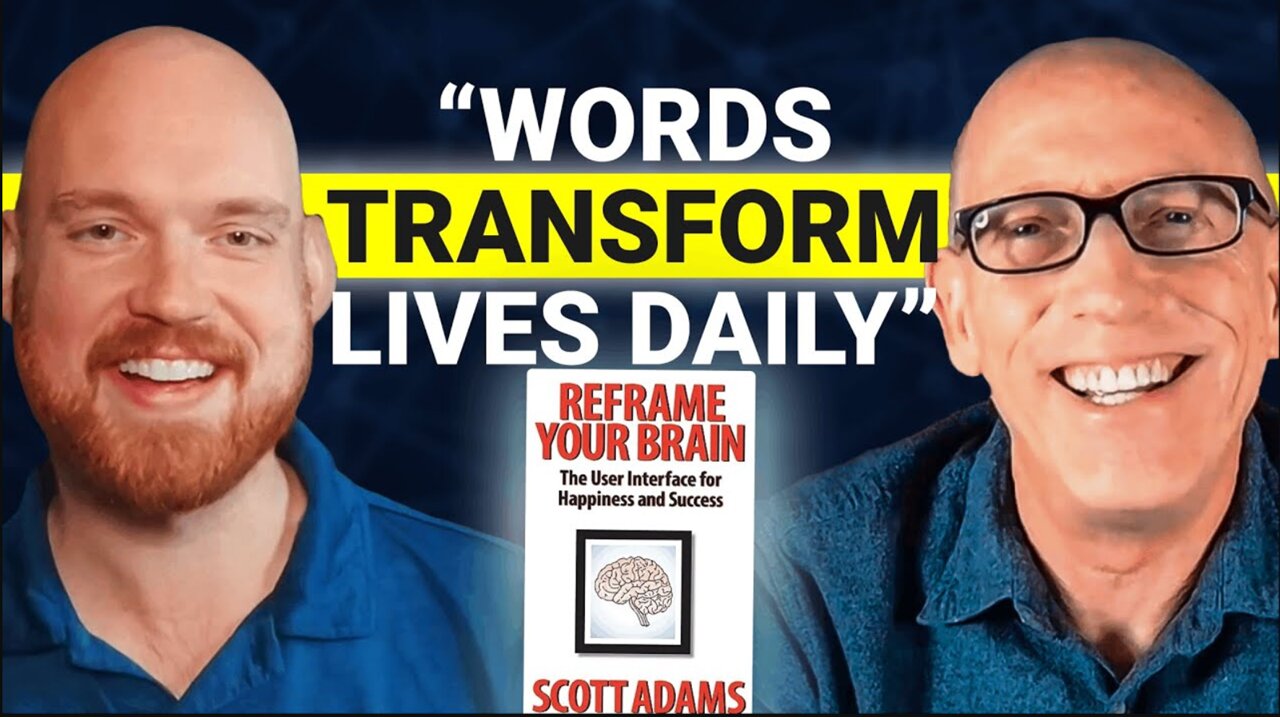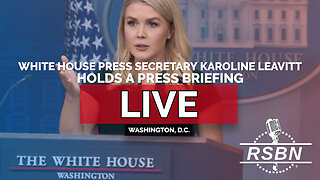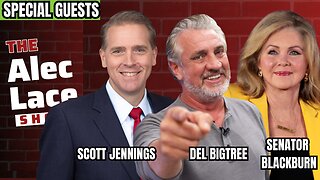Premium Only Content

Scott Adams Author Interview with Celebrity Ghostwriter and Persuasive Writing Coach Joshua Lisec
👉 Write a useful book that converts readers into high-paying clients. Free training shows you how: https://lisecghostwriting.com/golden/ 📖
When bestselling author and Dilbert creator Scott Adams sits down with celebrity ghostwriter and persuasive writing coach Joshua Lisec, sparks fly. Their conversation isn’t just about writing — it’s about how words shape perception, rewire beliefs, and can literally reprogram the mind. This is “Scott Adams Author Interview with Celebrity Ghostwriter and Persuasive Writing Coach Joshua Lisec”, a thought-provoking exchange that pulls back the curtain on creative process, persuasion, and the psychology of self-improvement.
Joshua Lisec — who served as editor and publishing consultant for Adams’s Reframe Your Brain and the updated edition of How to Fail at Almost Everything and Still Win Big — joins Scott to explore how reframing works at the deepest level. Together, they discuss how a simple shift in language can change behavior, how ideas evolve from sparks on a whiteboard into complete books, and why the act of authorship often feels like summoning a monster that eventually takes control of its creator.
Scott begins by revealing the origins of Reframe Your Brain. It started, he says, with a phrase scribbled on a whiteboard: “Reframing book.” That seed became the basis of a work that teaches readers how to change their lives — and even their identities — by changing the words they use to describe their experiences. He describes writing as both exhilarating and painful, comparing the process to childbirth — so intense, in fact, that writers seem to develop amnesia afterward and volunteer to do it again.
Joshua and Scott go on to discuss the anatomy of persuasion — the subtle, everyday hypnosis we all engage in without realizing it. Adams, who has a background in hypnosis, argues that reframing is a subset of persuasion, and persuasion itself is a natural human behavior. “We’re persuading each other all the time,” he says. “Even saying you’re not is persuasion.” He explains that advertisers, politicians, and leaders all rely on reframing: arranging words in just the right way to alter emotional and cognitive responses. Humans, Adams insists, aren’t rational — we’re rationalizers. We act on feelings first and then invent logical justifications afterward.
But Reframe Your Brain isn’t about manipulation. It’s about empowerment. The book’s 160 reframes are designed to improve health, career, relationships, and mental well-being by changing how readers interpret everyday challenges. Adams describes these reframes as “user interface updates for the human mind.” Just as software updates fix bugs and improve performance, reframes replace outdated mental scripts with more useful, life-enhancing ones.
Lisec, who teaches writing and messaging through his program The Best Way to Say It, finds Adams’s creative method fascinating. They compare notes on how ideas evolve from raw lists and bullet points into structured chapters. Adams admits that his process begins chaotically — notes on napkins, thoughts on whiteboards, quick lines typed into his phone — before gradually taking form. “The structure emerges on its own,” he says. “The material tells you what the chapters need to be.”
From there, the conversation dives into craftsmanship: how to hook a reader, how to organize ideas, and why the first sentence of a nonfiction book is every bit as critical as the first scene in a movie. Adams believes every opening line must “grab the reader by the lapel.” He gives the example of Reframe Your Brain’s first line: “For years I found it annoying to walk my dog.” It’s a simple sentence, yet instantly raises curiosity. Why would anyone find that annoying? The reader must know — and that’s the power of a great hook.
What follows is a perfect illustration of Adams’s reframing philosophy. Once frustrated by his dog’s endless sniffing, he learned that sniffing is essential for a dog’s happiness and mental stimulation. The moment he reframed walking his dog as taking his dog for a sniff, everything changed. The experience became joyful — even meditative. He now uses that time for posture exercises and deep breathing. A daily irritation transformed into a source of peace.
From this single anecdote, Adams explains how reframing applies to every aspect of life — from mundane chores like folding towels to major challenges like career setbacks or anxiety. “You can gamify anything,” he says. “Even folding towels can become an art form, a little display of skill. You start to feel proud instead of bored.”
Throughout the interview, Lisec draws out the deeper mechanics of Adams’s method: how curiosity drives engagement, how structure emerges naturally from meaning, and how persuasion techniques overlap with storytelling. Adams describes his approach to organizing a nonfiction book as part psychology, part marketing, and part information theory. Each chapter must deliver quick rewards, not make readers wait until the end. “Curiosity is the engine,” he explains. “You make them curious, then reward them right away.”
Their discussion also covers ethics. Adams acknowledges that persuasion can be misused, but insists that reframing — when used consciously — is one of the most ethical tools a person can apply. “The ultimate use of persuasion,” he says, “is to make the world a better place. To make others better and make yourself better.”
The interview concludes with real-world examples of Reframe Your Brain’s impact. Readers have written to Adams reporting that the book helped them quit drinking, lose weight, improve their relationships, and even land better jobs. One reframe, he says, changed someone’s career trajectory in just two days. “Sometimes,” he smiles, “it really is that simple.”
By the end of their conversation, viewers will come away with a rare behind-the-scenes look at two masters of communication — one who built a career through comics and cultural commentary, and another who built one by helping bestselling authors articulate their ideas. Together, they demonstrate how language shapes not only stories, but also success, behavior, and even happiness itself.
“Scott Adams Author Interview with Celebrity Ghostwriter and Persuasive Writing Coach Joshua Lisec” isn’t just an author Q&A — it’s a masterclass in the intersection of psychology, writing, and human potential. Whether you’re an aspiring author, a fan of Adams’s work, or someone curious about how words can literally change the way your brain works, this conversation will reframe how you think about thinking.
-
 59:30
59:30
The White House
2 hours agoPress Secretary Karoline Leavitt Briefs Members of the Media, Nov. 20, 2025
2.02K2 -
 2:06:37
2:06:37
Steven Crowder
4 hours agoJasmine Crockett's Epstein Idiocy & the Absolute State of the Democrat Party
401K250 -
 LIVE
LIVE
Sean Unpaved
2 hours agoAre Josh Allen & Bills On UPSET ALERT vs. Texans? | UNPAVED
99 watching -
 LIVE
LIVE
Side Scrollers Podcast
3 hours agoRoblox Kids TRANS Game + Pokimane ROASTED AGAIN + More | Side Scrollers
678 watching -

The Charlie Kirk Show
2 hours agoTP Action Update + Mogadishu Minnesota + Replacing ObamaCare | Bowyer, Thorpe, Cremieux | 11.20.2025
29.3K6 -

Right Side Broadcasting Network
4 hours agoLIVE: White House Press Secretary Karoline Leavitt Holds a Press Briefing - 11/20/25
29.8K9 -
 LIVE
LIVE
Rebel News
1 hour agoCBSA refugee revelation, No oil tankers in BC, Notwithstanding clause debate | Rebel Roundup
326 watching -
 LIVE
LIVE
TheAlecLaceShow
2 hours agoGuests: Scott Jennings, Senator Marsha Blackburn, Del Bigtree | The Alec Lace Show
62 watching -
 1:01:04
1:01:04
The Rubin Report
3 hours agoThe Exact Moment CNN Host Realizes Jasmine Crockett Is a Monster
30.5K68 -
 LIVE
LIVE
LFA TV
16 hours agoLIVE & BREAKING NEWS! | THURSDAY 11/20/25
2,256 watching